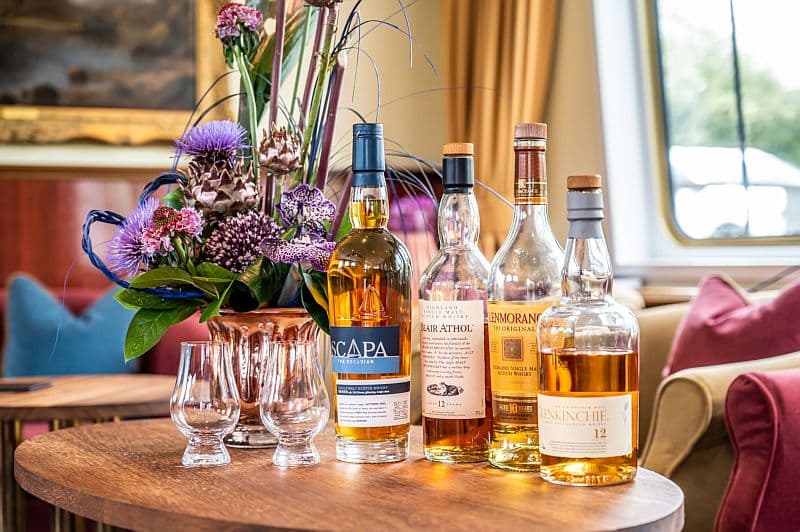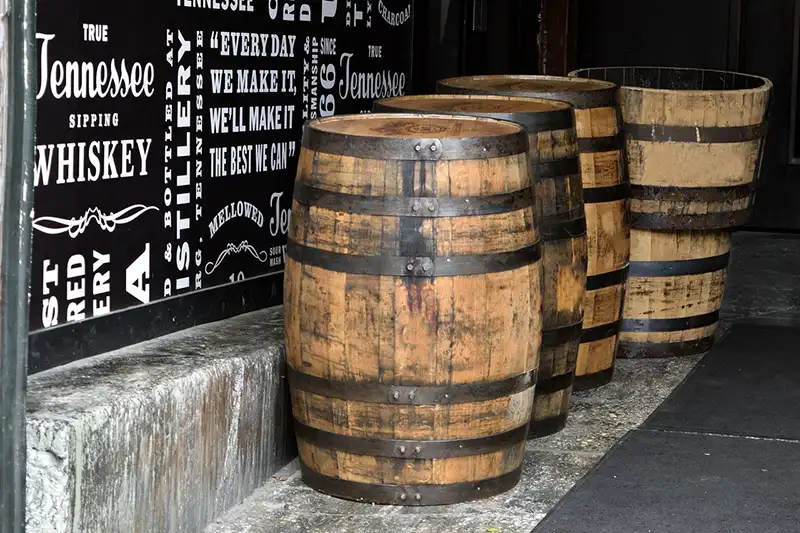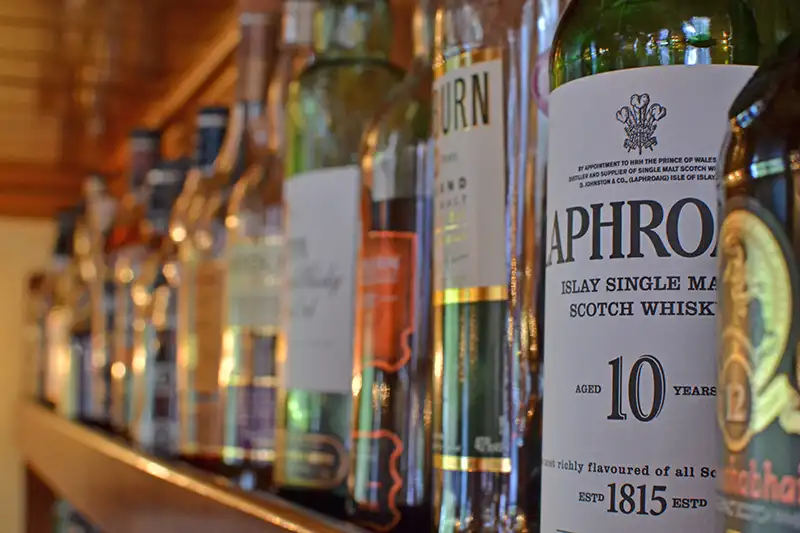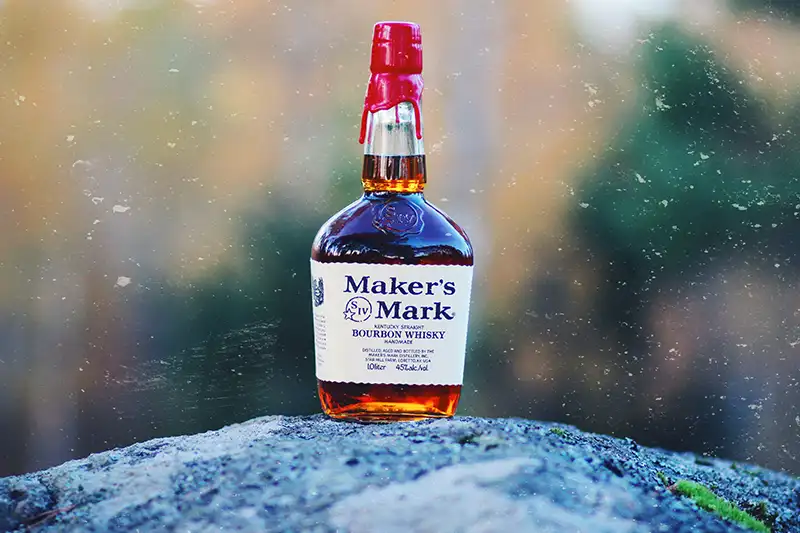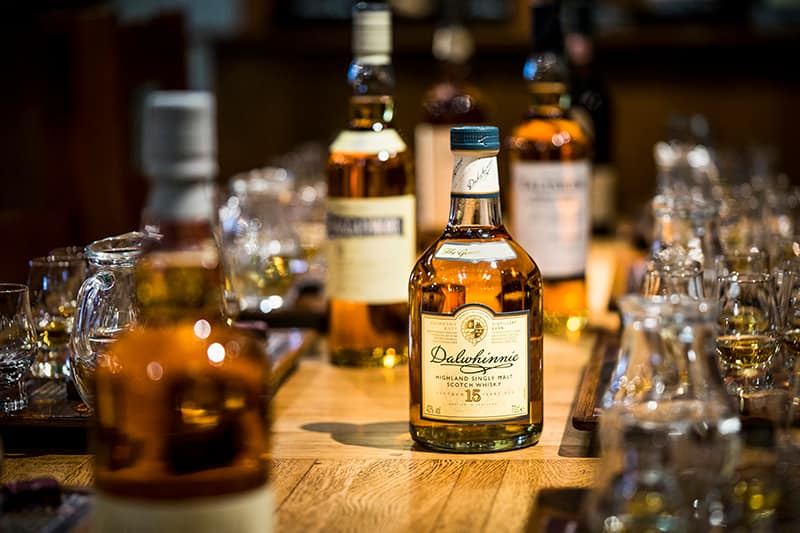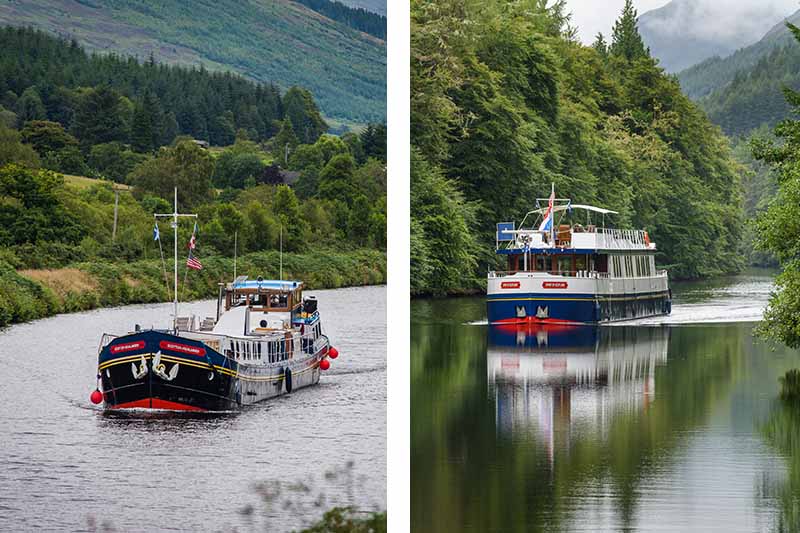How does Whisky, or Whiskey, relate to Scotch and Bourbon?
There’s a phrase “All bourbon and scotch are whiskies but not all whiskies are bourbon or scotch.” In other words, whisky is the overarching title, encompassing all distilled grain liquors aged in oak. Scotch and bourbon are types of whisky.
Scotch is usually made from barley and uses only one grain type, whilst bourbon is made from a combination – with corn predominant and other grains chosen to give different flavours and levels of sweetness. Bourbons tend to be sweeter than other types of whiskey.
Scotch is not called Scotch in Scotland
By the way, scotch is called whisky in Scotland. So if you want to be ‘in’ with the Scottish crowd and show off your knowledge, make sure to call it whisky (without an e). Whisky in Scotland is made from malted barley. It dates back to the 15th century, but laws governing the regulations that make it specifically Scottish whisky only came into being in 2009.
The name Scotch came about because it stems from the country’s name. Scotland is filled with Scots, Scottish people, and thus they make Scotch. Makes sense, right? The use of the term scotch is generally used in the USA, but never in Scotland.
You can discover more about Scottish Whisky on a barge cruise in Scotland. We offer a choice of two luxury barge’s, Scottish Highlander and Spirit of Scotland, to help you enjoy the waters.
Bourbon
Bourbon is an American ‘invention’. It’s a type of whiskey that by law can only be made in the United States. Like champagne can only be made in the French region of Champagne, bourbon can only be made in the USA to be able to be called bourbon.
Legally, bourbon must be aged in new American oak barrels that have been charred. It must contain 51% corn grain and once bottled must be a minimum of 80% proof. Also, it must be aged a minimum of 2 years to be called bourbon whiskey.
Most bourbons are produced in the state of Kentucky, but it is possible that any state could produce a bourbon.
Kentucky Bourbon
It’s believed that Kentucky bourbon began in 1789 (the same year as the French revolution). What’s argued is who invented it. Some say Elijah Craig, a Baptist Minister, invented it after ageing corn whisky and consequently opening a distillery in Georgetown, Kentucky that year. Others dispute this, saying no one individual invented it, rather many did. And they were spread out throughout the growing United States.
Kentucky even had its own revolution, participating in the 1794 Whiskey Rebellion, America’s first constitutional crisis. The uprising was due to the Whiskey Excise Tax. Pennsylvania led the rebellion and received the brunt of the repercussions, with leaders having to flee to the Spanish territory around New Orleans to escape arrest. Kentucky received less retaliation due to its then outlying remoteness. There were concerns that there would be little support for the invading army, as well as worry that it would push Kentucky into joining the Spanish territories. In consequence, the rebellion was downplayed in Kentucky and its distillers were let off lightly. And it became the ‘home’ of American whiskey.
Rye versus Bourbon Whisky
Rye whiskey is similar to bourbon except instead of 51% corn it is made with 51% rye mash. Straight rye whiskey must be aged at least 2 years and can have no colourings or flavourings added. And it must be distilled and bottled in the same state.
There are also wheat and corn whiskies from the USA. Wheat, like rye and bourbon, requires the 51% mash, but of wheat. Corn on the other hand requires at least 80% corn grain. Corn whiskey is the only one that can be un-aged. However, if it is aged, like bourbon, it must be in new charred oak barrels.
What is Single Malt Whisky?
Single malt whiskies are considered, at least by UK regulations, to be specific to barley made whisky. It must be produced at a single distillery and aged at least 3 years in oak barrels. Typically, single malts are aged 10-15 years. Barley, yeast and water are the only allowed ingredients. Although adding caramel colouring is allowed. The single malt goes through the same batch process at every whisky distiller.
Just to confuse us a little more on the whisky trail, a single malt can also be different types. Such as single barrel single malts, where a whisky is stored in a single barrel its minimum three years or more. As the choice of oak barrel can affect the taste of the whisky, barrels are often chosen because of what they held before the whisky. This includes sherry, port, cognac and even American whiskey.
As we read earlier, the US does not allow use of re-used oak barrels. And whilst the concept of the single malt can, and is, copied outside of Scotland, the constraints are not generally applied in the US. In example some US single malt whiskies are made from rye rather than barley.
Time for a Wee Dram
With our heads now full of the differences between Whisky, Whiskey, Scotch and Bourbon, I’d say it’s time for a wee dram as the Scottish like to say. A chance to sit, reflect and even debate over this delectably confusing concoction. A drink that ties countries together in its heritage, and yet offers up such delicious differences, And, like wine, there is always a new one to taste.
Maybe you will discover a new favourite onboard. Or even an old friend.
Whisky Trail Cruises in Scotland
There is nothing quite like a wee dram of Scotland’s favourite export, whisky. Our whisky cruises along the Caledonian Canal and Loch Ness offers the opportunity for guests to visit local, long-established distilleries and enjoy whisky tours in style. With whisky tasting at the heart of each tour, they’ll get the chance to explore some of the best distilleries in Scotland. And, back on board – guests can enjoy a host of single malt varieties in the open bar.
Find out more about our Whisky Trail Cruises in Scotland, by clicking here >
 English
English
 Spanish
Spanish French
French German
German Norwegian
Norwegian Portuguese
Portuguese Swedish
Swedish Italian
Italian Russian
Russian Simplified Chinese
Simplified Chinese Japanese
Japanese
